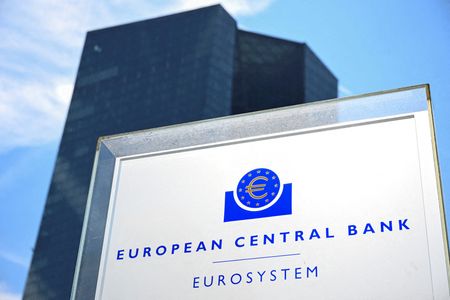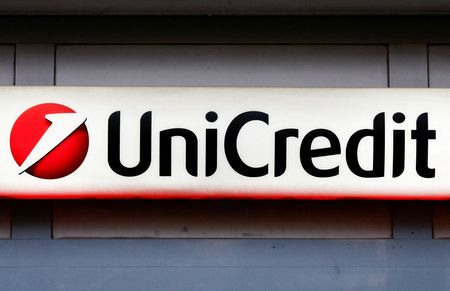FRANKFURT (Reuters) – European Central Bank interest rate cuts should compensate for the tightening impact of the bank’s balance sheet runoff, board member Piero Cipollone said on Tuesday, hinting that borrowing costs may need to go lower than some think.
The ECB plans to let hundreds of billions if not trillions of euros worth of debt expire in the coming years and just in 2025 around 500 billion euros ($522 billion) worth of bonds, mostly government debt, are set to mature as part of a long-agreed normalisation process.
This gradual reduction of bond holdings, also called quantitative tightening, agreed when inflation was far too high, is now working counter to the ECB’s aim of easing borrowing costs for an economy that has been broadly stagnant for two years now.
“While our rate cuts exert downward pressure primarily at the short end of the yield curve, our quantitative tightening exerts upward pressure on long-term maturities,” Cipollone said at an event with media outlet MNI.
“This serves to tighten financial conditions.”
“To strike the right balance, we should ensure that our rate decisions adequately compensate for the tightening induced by the reduction of our balance sheet.”
The argument would suggest that Cipollone may favour continued rate cuts as the balance sheet runoff could still continue for years, exerting upward pressure on long term borrowing costs.
Markets now see another three rate cuts this year, taking the benchmark deposit rate to 2%, the likely bottom of the current easing cycle.
At its peak in early 2022, the bank’s oversized holding of bonds lowered ten-year sovereign bond yields by around 175 basis points but that impact is now down to around 75 bps and falling, Cipollone said.
Cipollone declined to give an optimal size for the bank’s balance sheet and said this depended in great deal on commercial banks’ liquidity demands.
The ECB is still sitting on about 4.2 trillion euros worth of bonds purchased for monetary policy purposes.
“The further decline in our balance sheet must remain on a gradual and predictable path to avoid financial amplification effects,” Cipollone said.
($1 = 0.9570 euros)
(Reporting by Balazs Koranyi; Editing by Andrew Cawthorne)











